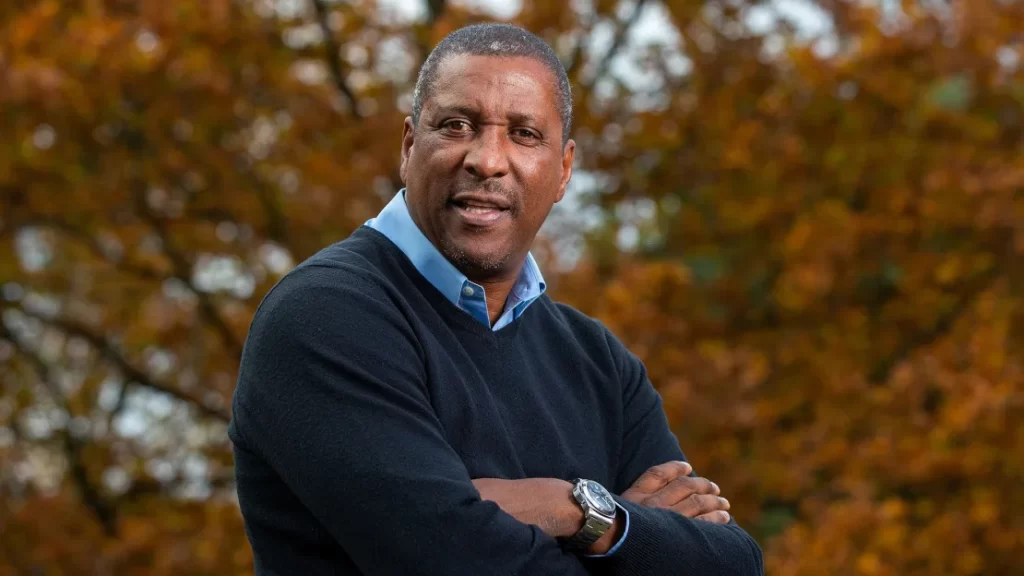
Viv Anderson vividly recalls the freezing conditions during his historic debut as England’s first Black football player over 40 years ago. The frozen pitch at Wembley Stadium was so hard that players had to wear rubber-soled cleats instead of metal studs. Despite the uninviting weather, the match against Czechoslovakia proceeded, resulting in a 1-0 victory for England. Yet, the most significant aspect of that day was Anderson’s groundbreaking achievement.
“It was a massive thing at the time,” Anderson told CNN Sport. “I feel very privileged to be the first; to be first at anything is a remarkable achievement.”
Just days before stepping onto the pitch, journalists were already seeking insights from Anderson’s parents, teachers, and childhood coaches, eager to capture the significance of his impending debut. While Black players had previously played at youth levels, Anderson, whose parents were part of the Windrush generation from Jamaica, was the first to make it to the senior team. To commemorate his debut, he received telegrams from Queen Elizabeth II and Elton John.
Despite the surrounding excitement, Anderson focused on the match itself. “You go into football mode,” he recalled, emphasizing the importance of performing well amidst the historic moment. “I aimed for the first header, the first tackle, and the first pass, ensuring I executed each correctly.”
Now, Anderson is revisiting his past as he prepares to auction a collection of memorabilia, including medals, trophies, England caps, and the jersey he wore during his debut. Initially, he planned to sell the jersey to help finance his son’s upcoming wedding, but as he rummaged through his belongings, he discovered an array of items that had not seen the light of day for decades.
The jersey, auctioned by Graham Budd Auctions, ultimately did not reach its reserve price of around $40,000 (£30,000), but the entire collection sold for approximately $180,000 (£135,335). This haul reflects Anderson’s illustrious career, during which he won two consecutive European Cup titles with Nottingham Forest and collected various trophies with Manchester United and Arsenal.
However, not all of Anderson’s experiences on the field were positive. He faced persistent racism throughout his career. He recalls one incident when fruit was thrown at him from the stands as he warmed up. During another match, a glass bottle was hurled his way. It was then that Brian Clough, the late Nottingham Forest manager, encouraged him to rise above the abuse. Clough advised Anderson to not let the hostility dictate his performance and to focus on proving himself on the pitch.
“‘You’ve got to go out there and show them you can play,’” Anderson remembers Clough saying. “It was a good lesson for a 17-year-old, and I carried that wisdom throughout my career.”

Racism was widespread during the 1970s and 80s in England, affecting many players, including Clyde Best and Cyrille Regis. Regis, who received a threatening bullet after earning his first England cap, noted the challenges faced by Black players. Despite the hostility, he and Anderson learned to transform negativity into motivation, striving to prove detractors wrong.
Reflecting on his own journey, Anderson acknowledges that Black players had to overcome significant obstacles to achieve their dreams. “First and foremost, I wanted to be a footballer, and I did whatever it took to achieve that goal,” he said.
A standout full-back known for his speed and tenacity, Anderson earned the nickname “Spider.” He became a prominent figure in English football, ultimately retiring in 1995. Today, he believes the sport still has much work to do regarding diversity and inclusion. Racism remains a concern, both in stadiums and online, and he notes the lack of Black managers in top English football.
Anderson recalls a time when the appointment of Keith Alexander as Lincoln’s manager in 1993 was seen as a sign of progress. However, decades later, little has changed. The 2023 Szymanski Report revealed that only 14% of coaches with top qualifications in England are Black, and just 4.4% of management positions in the top four leagues are held by Black individuals.
The English Football Association acknowledges the strides made toward increasing diversity within coaching pathways but emphasizes the need for collective efforts from all clubs and organizations to foster inclusivity. Premier League CEO Richard Masters has also promised continued progress in coaching inclusion programs.
As Anderson looks back on his legacy, he stands alongside other Black pioneers in football, like Jack Leslie, who was denied the chance to play for England in 1925 due to his race. At 68, Anderson’s impact is undeniable. His debut may not have been a remarkable game, but the experience of wearing the England shirt remains one of his proudest moments. “To play for your country, to put on that shirt and walk out to 100,000 people… it’s a great feeling,” he said.







